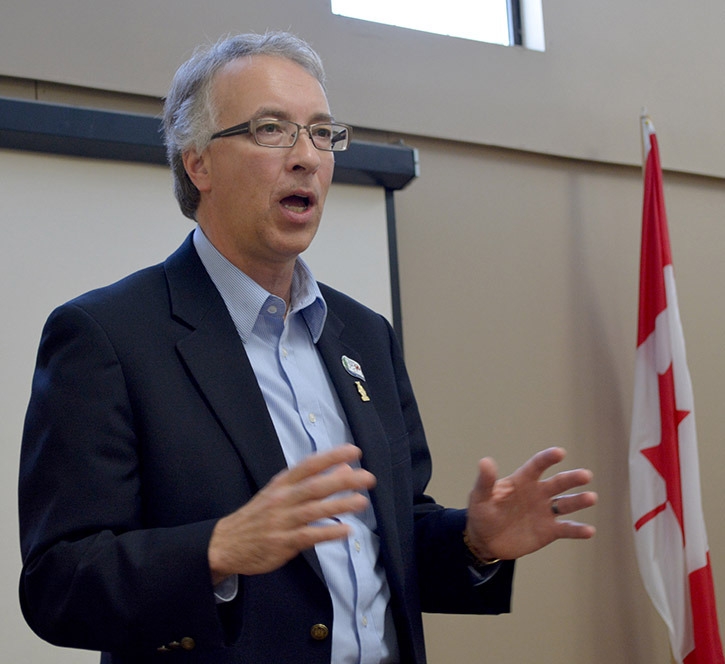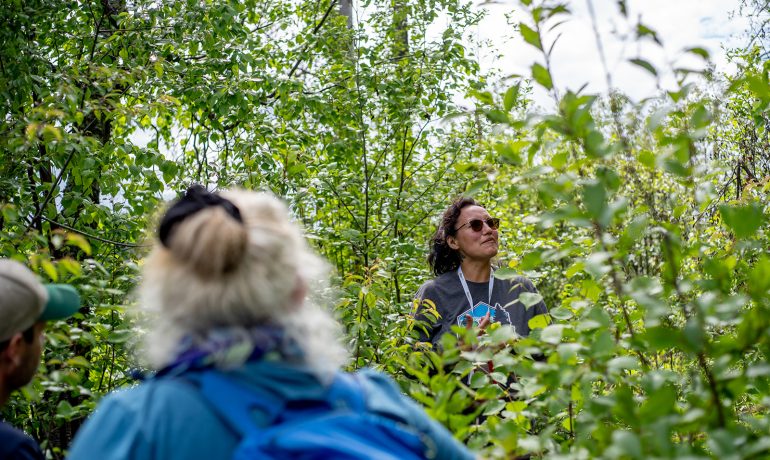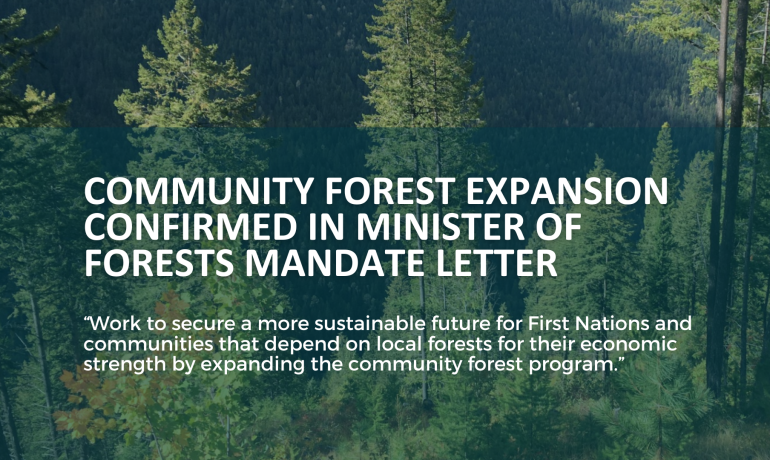by Monica Lamb-Yorski – Williams Lake Tribune
Uncertainty was one thing participants at a recent public meeting said they had in common surrounding the 2014 Tsilhqot’in Rights and Title decision.
B.C.’s Minister of Aboriginal Relations and Reconciliation John Rustad said Friday he understood how everyone felt but admitted the government doesn’t know yet how the case will unfold for non-First Nations living and working in the 1,900 square kilometre title area.
Rustad was speaking in Williams Lake at a meeting that attracted around 60 ranchers, guide outfitters, tourism operators, local government politicians and the Chamber of Commerce.
“If it was just straight common law, it would be theirs,” Rustad said. “But right now we, and they, are trying to figure out how we work together with all the existing tenures so that you can still carry on with all that you are doing.”
Instead of paying the province an annual fee for permits or licences for example, those fees will probably be paid to the Tsilhqot’in, Rustad offered as a possibility.
Every aspect of the agreements First Nations make with the province around the title case have to be taken back to the membership for approval, Xeni Gwet’in Chief Roger William told the Tribune.
“At the end of the day this all goes through membership to ratify agreement,” William said. “We are a long ways from that. We are looking at some interim agreements and mapping out long-term agreements. At the end of March we will have a good idea how serious B.C. is and what they are willing to do.”
Cariboo-Chilcotin MLA Donna Barnett said she invited Rustad to Williams Lake on Friday because First Nations and non-First Nations in the Chilcotin need certainty.
“There are a lot of people whose livelihoods depend on it and it’s very difficult not knowing what tomorrow is going to bring,” Barnett said.
During the meeting Rustad heard repeatedly that many people are feeling left in the dark.
Private land owner Nancy Oppermann asked if people can feel confident that things like road and RCMP services will be provided during the transition period.
“We did see a real resistance last year in the RCMP services as well as road services as soon as the decision came out in June,” Oppermann said. “But at the end of the day there should be a responsibility on the part of government for these lands within the title area that are being taxed.”
Bed and Breakfast operator Jon Tanis has lived and worked in Nemiah Valley for many years and agreed the rights and title case is complex and precedent setting.
“Many of us have great relationships with the Xeni Gwet’in people,” Tanis said, adding the only communication from government he’s had since the decision was a letter advising him he couldn’t hunt.
“I know you don’t know a lot, but even if you could just tell us that. It’s better than silence,” Tanis told Rustad.
Friedrich Dieck runs a trapline in the Chilcotin.
Prior to the court decision, 300 square kilometres of his trapline area was removed and returned to First Nations, he said, adding after the court decision he lost another 200 square kilometres and a good cabin.
“I never received any written notice or spoken notice that I lost the right on this area. I think this is absolutely wrong.”
Rustad promised to create a data base collecting contact information for everyone living within the title area to establish better communication.
The provincial government fought for 25 years in court with the Tsilhqot’in, butting heads, and having nothing but problems, Rustad said. Since the title case decision the two governments have set out on a path to work together.
“They have been very good to work with as we try to resolve very complex issues,” Rustad said. “The relationship has changed, which is positive, and it still has a long way to go.”
Guide outfitters were the only group told they can expect some certainty for the upcoming season.
“My understanding is that the Tsilhqot’in have said carry on with the guide outfitting for the next year while we continue to work this thing through,” Rustad confirmed.
Related Post
As Published in Canadian Forest Industries Magazine, Pulp & Paper Magazine and Canadian Biomass Magazine
Jennifer Gunter’s Op Ed, “Community Forests: Rooted in Community,
Minister of Forests Mandated to Expand BC’s Community Forest Program
In the recently released mandate letter to the Minister



